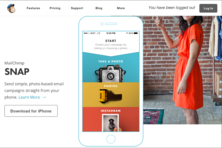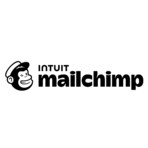Email newsletter software assists businesses of all sizes in managing mailing lists and sending mass newsletter emails as a way to effectively communicate with customers. Online newsletters are fresh methods people use to keep people updated and informed regarding important articles and information. This is highly critical in client-oriented and emails-based businesses. You have to ensure people remember your brand, your product, and your services to get them to keep coming back. It’s more helpful if the content you send is related to what your business has to offer. If you don’t remind or notify them regarding certain activities and events, they can easily find another company to go to.
Businesses employ email marketing services as part of their overall marketing strategies. Accordingly, this type of marketing is a driving factor in customer acquisition and retention. Statistics and research have also shown that customers are more open to receiving emails than other types of communications from businesses, as long as it isn’t too much. A definite balance has to be struck when it comes to sending out updates and notifications. You can decide on the interval period between the number of emails received by your audience. Nonetheless, in order to strengthen existing relationships with your customers, you generally need an email newsletter software solution.
Before diving into more details regarding email newsletter software, the broad topic of email marketing software needs to be discussed first and foremost. This particular software offers several unique solutions to cater to an organization’s needs and requirements. A number of differences and nuances are what separates them from each other. However, at the end of the day, email marketing software focuses on building a steady flow of communication between you and your customer base. The following types of email marketing software are categorized based on their usage:
Direct sales – refers to emails promoting offers and discounts
Newsletters – focuses on providing quality content such as news articles, tips, and guides
Transactional emails – usually used for administrative purposes and includes order confirmation emails and password reset requests
Autoresponders – based on the recipient’s feedback; allows you to route messages to different paths when they are triggered by specific responses.
Marketing teams send email newsletters to their customers as a way to ensure the value of their products and services. Customers who’ve availed of your business before are already aware of what you’re selling. With written content such as tips, guides, and articles, you are giving them more reason to return to the services you’ve offered. The content can also be used to push out promotions and one-time offers.
When deciding on which software provider to use, it’s best to look out for ease of use, a responsive display, a conclusive feature set (especially A/B testing), the number limit of emails per month, and what third-party integrations are supported.
Several email marketing tools are made available in the current market. They’re packaged differently and offer advanced features based on what you’re looking for. A few examples are HubSpot Marketing, Marketo, iContact and MailChimp. If you want to compare their functionalities, they also offer free plans. Some paid plans start at $200 per month (HubSpot) while others can go as low as $10 (MailChimp.)

 Mailchimp is the market leader in the email newsletter space. It is very simple to set up and easily integrates with a great many related products. With a huge range of features, yet simple and easy to manage interface, you can’t go wrong with this service.
Mailchimp is the market leader in the email newsletter space. It is very simple to set up and easily integrates with a great many related products. With a huge range of features, yet simple and easy to manage interface, you can’t go wrong with this service.
Email newsletter software solutions are used by companies and businesses to improve interactions and relationships with their customers. This is done by consistently sending out content related to their products and services. It lets subscribers know they haven’t been forgotten by the company. Additionally, through this method, promising leads can also be acquired by the marketing team.
The email marketing method is a cost-effective way to promote offers and discounts, send advertisements, request donations and solicit sales. Every email sent by a company to a customer can be considered as a form of email marketing. What makes email newsletter tools so effective and efficient in today’s time is its ability to personalize emails automatically. You no longer have to worry about writing each email manually as this takes up a lot of time and effort on your part.
MailChimp, a marketing automation software solution, provides businesses with integrated features and an all-in-one solution for inbound campaigns and customer relationship management. Its advantages include detailed reports, generous premium plans, and an easy-to-navigate template editor. Their plans are based off on the number of subscribers you have with the price steadily rising as your audience grows.
With this in mind, here are the most sought after features looked for in email marketing software:
Since most of your information is coming from emails, it’s best to have the contact management feature ingrained in the system. This basically allows you to manage your contacts into email lists, which makes it easier for you to send emails based on a certain demographic. Additionally, when conducting marketing campaigns and sending product-related content, it’s helpful to have the entire history of conversations stored safely up in the cloud-based software solution.
Being able to customize your templates gives you the freedom to make the emails you send out as your own. You can create and draft different templates based on recipient feedback. These can range from professional follow-ups to thank-you emails. With this feature in your system, you don’t have to depend on a physical workforce to write these messages for you. Instead, it becomes part of your automated workforce, improving efficiency and promoting productivity.
Having performance reports lets you see how well your emails are performing based on a number of stats. This means knowing the number of times they were delivered, opened, and clicked. Through this feature, you can analyze which emails or shared content are well-received by your audience, providing you with enough knowledge on how to strategize and monitor your next marketing campaign.
Tracking, one of the most important features in software solutions, lets you monitor and manage critical email marketing metrics while analytics provide you with valuable insights regarding your customer base. This means being able to measure the success rate of their email campaigns. This is done by studying the following metrics to ensure the effectivity of the sent emails:
By knowing their performance on each of the prior metrics, marketing teams are able to improve their next email strategy.
Emails have become integral in daily activities as people often check their inbox every day for news, events and communication, both personal and professional. Sending online email newsletters have become a marketing technique to ensure constant communication and strong relationships with the audience.
With this in mind, here are the three benefits you can gain from using email newsletter software:
You don’t have to worry about manually sending emails to your customers every single day. Instead, you can craft your emails ahead of time and schedule them using marketing automation software. This also lessens the tendency to spam the audience with unnecessary messages and allows you to set a regular interval between each email thread.
Being in constant communication with your audience improves sales and business opportunities. Additionally, this allows you to generate and nurture leads from your existing customer pool. It is a known fact that customers are more open to receiving emails and messages from companies they are familiar with.
Before, organizations relied heavily on door-to-door sales talk and even cold calling. However, these outdated methods aren’t exactly welcomed by paying customers who only see this is a nuisance. Instead, managers are now relying on emails as a means to effectively and efficiently promote products and services without bothering their clients.
Overall, email marketing is one of the most effective strategies used by businesses of all sizes. It provides marketing teams with fresh alternatives and boosted opportunities to improve their sales revenue while also getting to know the customers on their contacts list. Through email newsletters, organizations can pass on relevant information, establish a reputation, improve relationships and generate promising leads.